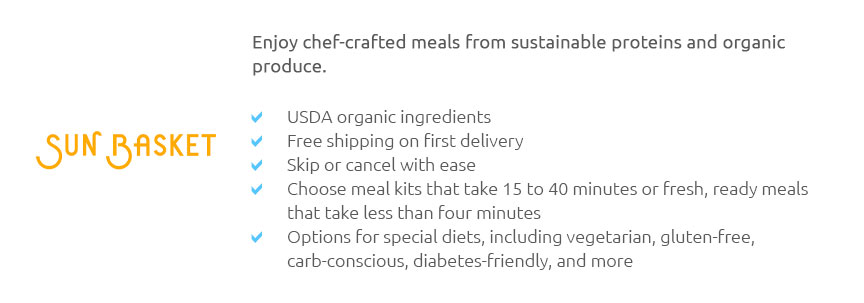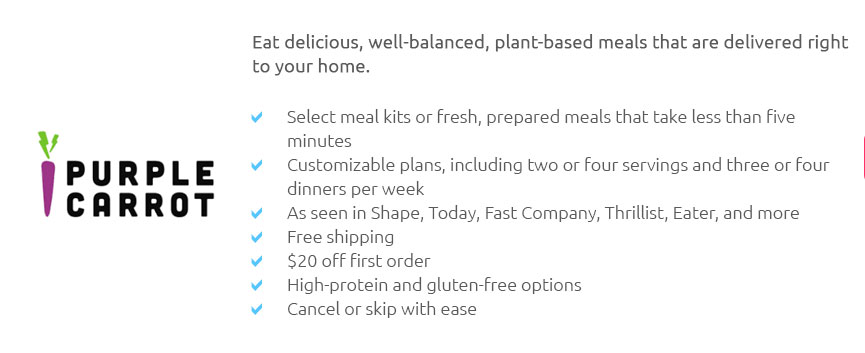 |
 |
 |
|---|
 |
|---|
 |
||||||
|---|---|---|---|---|---|---|
|
||||||
 |
 |
|||||
 |
 |
|||||
 |
 |
|||||
 |
 |
|||||
 |
 |
|||||
 |
 |
|||||
 |
 |
|||||
 |
 |
|---|
Exploring the World of Healthy Meal Delivery: A Comprehensive GuideIn today's fast-paced world, the concept of healthy meal delivery has gained unprecedented traction, offering a beacon of hope for those striving to maintain a balanced diet amidst hectic schedules. The increasing demand for convenience, coupled with a growing awareness of nutritional needs, has propelled this industry into the spotlight. But what exactly makes these services appealing, and are they worth the investment? Let us delve into this culinary revolution that is reshaping how we perceive and consume food. At its core, healthy meal delivery is about more than just convenience; it's a commitment to fostering a healthier lifestyle. These services promise to deliver not only delicious but also nutritionally balanced meals right to your doorstep. They cater to a myriad of dietary preferences and restrictions, from vegan and vegetarian to keto and paleo, ensuring that no dietary requirement is left unaddressed. One of the standout benefits of meal delivery services is the time-saving aspect. In a world where every minute counts, the luxury of having pre-prepared meals can significantly reduce the time spent on meal planning, grocery shopping, and cooking. This efficiency allows individuals to allocate more time to other important aspects of their lives, whether it's work, family, or personal hobbies. Moreover, the quality of ingredients used by these services often surpasses what one might find in a typical grocery store. Many companies pride themselves on sourcing organic, locally grown produce, and antibiotic-free meats, emphasizing sustainability and quality. This focus not only enhances the taste and nutritional value of the meals but also supports local farmers and reduces the carbon footprint associated with food production and transportation.
However, it is important to acknowledge that while meal delivery services offer numerous advantages, they are not without their drawbacks. Cost remains a significant factor, as the convenience and quality of these meals often come at a premium. Additionally, the environmental impact of packaging, although improving, still raises concerns among environmentally-conscious consumers. In conclusion, the rise of healthy meal delivery services reflects a broader shift towards a more health-conscious society, where the value of time and nutrition is increasingly recognized. While these services may not be the perfect fit for everyone, they undoubtedly provide a valuable option for those seeking to simplify their lives while prioritizing their health. As the industry continues to evolve, it will be fascinating to observe how it adapts to the ever-changing needs and expectations of its clientele. https://www.cleaneatzkitchen.com/?srsltid=AfmBOopljm4xF0JzR0IMv7cJZylq0xBYZ825vzckhYa-uuas0N4lex5c
We plan, shop, cook, and deliver your healthy meals to you with Free Shipping on orders over $85. HEAT AND EAT Our fully-cooked meals just need to be warmed in ... https://sunbasket.com/?srsltid=AfmBOoq3w3bHQTDRwB_vlF3L43VrrFwE3Xf7IQ0VhEpc2rxbTh5JmLPh
Sunbasket offers healthy meals delivered, from heat-and-eat meals to cooking kits, for all tastes and lifestyles. https://www.bonappetit.com/story/best-meal-delivery-services?srsltid=AfmBOoqMRScWulRBCesy6uOxuh-jEZDe1BRHwzvxZR2htSaklx5QwG-t
Territory pitches itself as a healthy meal delivery service that works with local chefs and restaurants to supply individually packaged meals.
|
|---|


